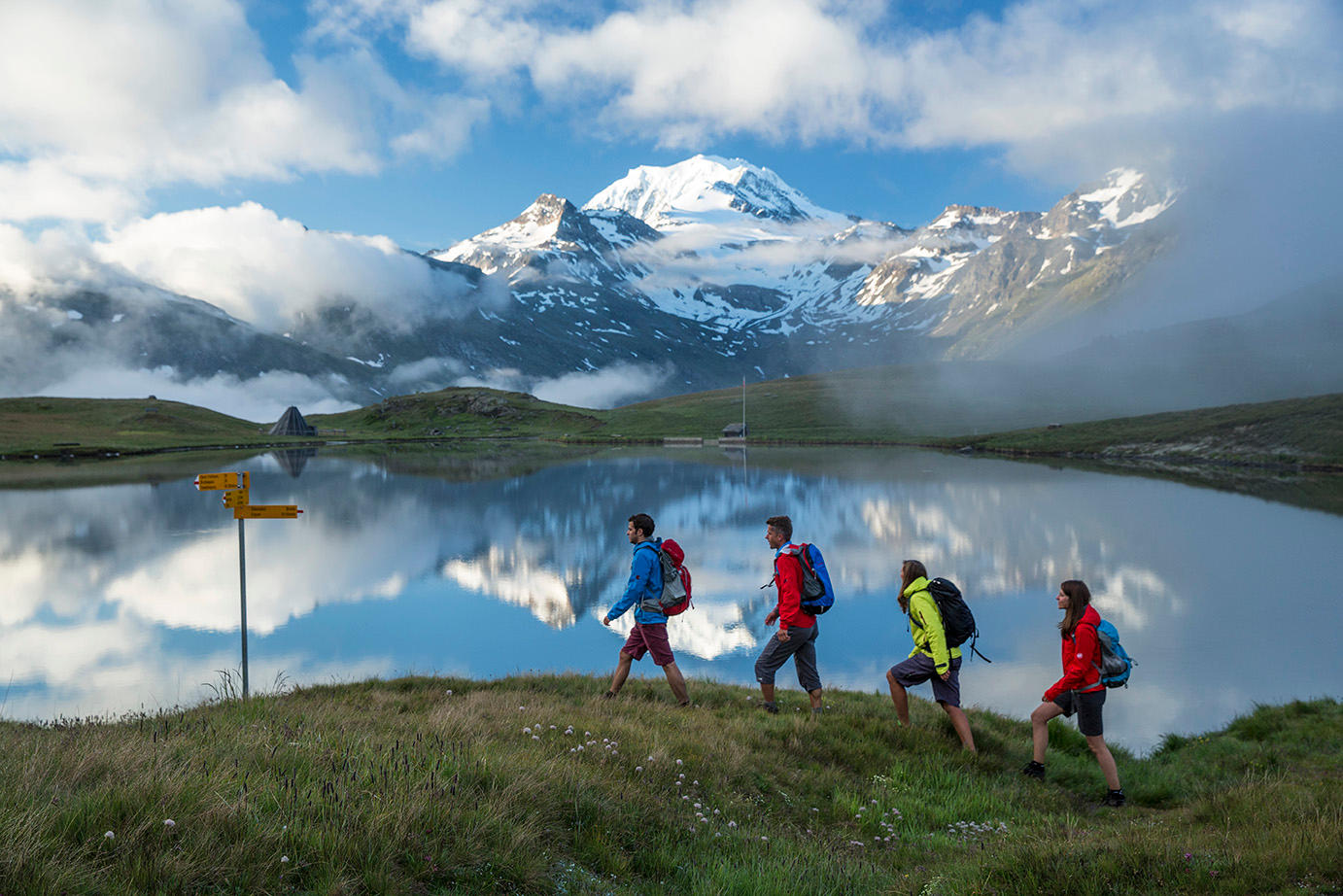Bad weather forces closure of many Swiss hiking trails

Some 620 hiking trails are still closed due to bad weather this summer, with the canton of Valais particularly hard hit, Swiss public radio, RTS, reports.
According to the umbrella organisation Suisse Rando, quoted by the Neue Zürcher Zeitung newspaper, the closed routes represent around 1,300 kilometres of trails.
Valais, which boasts some 8,800 kilometres of hiking paths, was particularly hard hit. “A good proportion in certain regions are inaccessible or badly damaged,” said Sébastien Rappaz, head of the Valrando trail association in the French-speaking part of Valais.

More
What you need to know about hiking in Switzerland
“It’s difficult to give a figure for the number of kilometres affected, because there are still all the paths that are not accessible due to snow,” Rappaz told Swiss public radio, RTS. For the time being, “what we can do is inform people so that they don’t end up in situations where there are no paths where they were expected”.
Rappaz said he was counting on local municipalities, which are responsible for maintaining the trails, to pass on the information. The aim is then for this information to be published on various mobile apps and internet platforms of Suisse Rando and SuisseMobile, which are used a lot by hikers, he said.
Want to read our weekly top stories? Subscribe here.
The clearance work on paths which are only slightly damaged will be done gradually, said Rappaz, who added that resources “are relatively limited”. He warns that some paths may even have to be scrapped altogether. “We may have to think about the future of certain trails, whether they will be reopened or not, whether we will have to build a special infrastructure or not. There are two or three questions that will come up in the near future,” he said.
Climate risks
Meanwhile global warming is likely to increase pressure on hiking trails. “We have paths on moraines which are subsiding, and paths in the high mountains which were previously protected from rockfalls by permafrost – but as it disappears, these regions are becoming more exposed. Flooding and debris flows are not new phenomena, but they have increased in importance in recent years and are not always predictable,” Rappaz said.
“The first thing to do is thus to follow the official signposted routes, which allow you to maintain a certain sense of control. After that, you can plan your hike in much the same way as usual, but maybe with a little extra information beforehand: make sure the paths are still there, make sure they are clear of snow, by calling the local tourist office, a hut, a hotel or something else in the area.”
Finally, Rappaz says that sometimes you just have to give up. “When you don’t have the skills or abilities, you shouldn’t be afraid to turn back,” he said.
Adapted from French by DeepL/dos
This news story has been written and carefully fact-checked by an external editorial team. At SWI swissinfo.ch we select the most relevant news for an international audience and use automatic translation tools such as DeepL to translate it into English. Providing you with automatically translated news gives us the time to write more in-depth articles.
If you want to know more about how we work, have a look here, if you want to learn more about how we use technology, click here, and if you have feedback on this news story please write to english@swissinfo.ch.

In compliance with the JTI standards
More: SWI swissinfo.ch certified by the Journalism Trust Initiative


















You can find an overview of ongoing debates with our journalists here . Please join us!
If you want to start a conversation about a topic raised in this article or want to report factual errors, email us at english@swissinfo.ch.